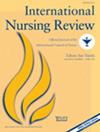Evaluating nurses' psychological and operational preparedness for mass-casualty events in Saudi Arabia
Abstract
Aim
This study assessed nurses' psychological and operational preparedness for mass-casualty events in healthcare settings.
Background
Nurses are vital responders in mass-casualty events, which demand quick and effective actions. Both psychological and operational preparedness are key to ensuring their ability to manage such high-pressure situations.
Methods
A multicenter, cross-sectional study was conducted among 156 emergency nurses in Saudi Arabia. Data were collected using a structured questionnaire based on the Transactional Model of Stress and Coping and the Hospital Emergency Incident Command System to assess psychological and operational preparedness. Data collection included demographic information, previous training, incident response experience, preparedness priorities for various mass-casualty events, and perceived challenges and barriers to response. The data were analyzed using descriptive and inferential statistics.
Findings
Discrepancies were observed between training and response experience for mass-casualty events, with natural disasters showing the highest alignment and priority, while transportation and fire-related incidents had a greater response than training, suggesting reliance on practical experience rather than formal education. War injuries were among the highly prioritized, with training exceeding response, potentially reflecting geopolitical concerns. Psychological and operational preparedness were moderately rated, with a strong correlation between the two, indicating that enhancing psychological resilience could improve overall preparedness. Key perceived barriers included staff shortages, inadequate resources, psychological stress, insufficient training, and unclear protocols or lack of guidelines.
Conclusion
The study highlights moderate preparedness levels, with a need for more targeted training and systemic improvements to address identified barriers.
Implications for nursing and health policy
Health policies should prioritize comprehensive disaster preparedness programs with mental health support, clear protocols, and adequate training to improve nurse preparedness for mass-casualty events. Addressing perceived barriers will strengthen the healthcare system's emergency response.

 求助内容:
求助内容: 应助结果提醒方式:
应助结果提醒方式:


